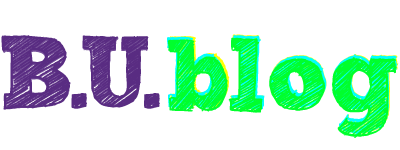Not a One-Size-Fits-All
I like to think of myself as an expert studier because I’ve tried a lot of different things and I’ve taken a lot of psychology courses where I’ve learned what works and what doesn’t. Not every tip and trick will apply to you, but in time you’ll figure out how you can study smarter, not harder, in a way that works for you.
The Secret to Success
DO NOT, I repeat DO NOT wait until the last minute to study. Time is your friend, so use it. I’m not saying start studying a week in advance (not a terrible idea, by the way), but give yourself somewhere between 3-5 days to study.
Starting to study the day before an exam is common for some students but cramming is the worst thing you can do, at least for me. Although some people might get good grades doing things this way, it’s a lot more stressful and you’re more likely to pull an all-nighter. Lack of sleep can then make it harder to remember the information and concentrate during the exam. And cramming means you’re likely to forget all the information you just learned.
Pen to Paper
My first tip is to narrow down your notes. If you haven’t taken notes in class, this is the time to start. Most profs will let you know what to focus on and what isn’t essential. When you’re doing that, come up with examples for concepts. This will vary depending on programs and courses but try to add new information to existing content to make your brain interact with the material. If I’m trying to remember the four parenting styles in psychology, instead of just memorizing the definitions of each, I will come up with examples of some behaviours you might see in each type of parenting.
Flashcards
Once you’ve done that, I like to make Quizlets or cue cards. Review your new notes and come up with questions. This is another way to interact with the information and you can test yourself. Little tip for you: make questions based on how you will be tested. If it’s a multiple-choice exam, make multiple choice questions. If it’s a short answer exam, make short answer questions and so on. You want to encode the information the same way you will retrieve it later.
When I have short answer tests, I’ll come up with open ended questions as oppose to close ended questions. Instead of asking myself “do the following factors increase the risk of stress?” I would ask “what factors increase the risk of stress?” This way my brain is thinking instead of recognizing.
Talk it Out
The tips above on their own are good but if you have the time and know someone in your class you can study with, do it. The important thing is that this works better when both people have studied a little bit already on their own. Essentially, you go over all the material in dialogue form, talking about each concept and explaining what each person knows or doesn’t. The beauty of this method is that explaining concepts aloud solidifies the information in your mind. Doing this will also help to show you what you don’t know as well and what you need to focus on most.
Lastly…
The more time you give yourself to study, the easier it will be. When you do it this way you can study in shorter blocks like 2-3 hours a day for a couple days instead of 12+ hours of cramming the day before.
Sleep is so important when it comes to studying. When you sleep your brain is essentially downloading all the information from that day. Do your brain a favour and go to bed at a decent hour and get around 7-9 hours of sleep.


